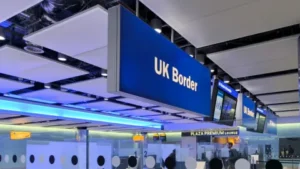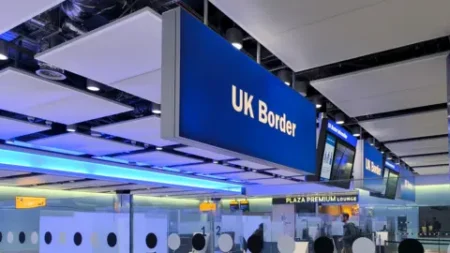On a recent Thursday and Friday, countless travelers found themselves in disarray due to strikes orchestrated by French air traffic controllers. The industrial action, reportedly involving two French unions, targeted working conditions, significantly disrupting air travel across Europe. Major airlines such as Ryanair reported that more than 170 flights were canceled, deeply affecting over 30,000 passengers as they attempted to navigate the complexities of their holiday plans.
In a severe blow to operational schedules, airports in Paris experienced a staggering cancellation rate, with reports of about a quarter of flights being struck down at France’s primary airports. Nice’s airport saw even more drastic repercussions, where almost half of its flights were annulled, leaving many travelers stranded and frustrated. French Transport Minister Philippe Tabarot did not hold back in his criticism, labeling the unions’ demands and their decision to strike at such a pivotal time as “unacceptable.” This sentiment articulated the frustration of countless families who were looking forward to their summer getaways.
The repercussions of the strike rippled beyond flights solely traveling to and from France; aircraft traversing through French airspace—on routes connecting various destinations including the UK, Ireland, Spain, and Greece—also faced cancellations due to the disruptions. Ryanair’s chief executive, Michael O’Leary, was vocally critical, accusing the air traffic controllers of “holding European families to ransom” and calling the situation “abundantly unfair.” He urged for immediate intervention from European Commission President Ursula von der Leyen to ensure a minimum service level during such strikes, aiming to safeguard flights from the impacts of domestic industrial actions.
To alleviate the chaos, France’s civil aviation authority, known as DGAC, directed airlines to curtail their flight schedules at key airports throughout the nation. With expectations that the disruption would intensify on the subsequent day, approximately 40% fewer flights were anticipated to be available from Paris airports, including Charles de Gaulle, Orly, and Beauvais.
The strike was instigated by the UNSA-ICNA union, echoing growing concerns over staffing shortages, management challenges within the air traffic control sector, and the proposed implementation of a contentious clock-in system for controllers. Unfortunately, talks held between the unions and DGAC earlier in the week did not yield constructive resolutions.
The aviation sector expressed strong disapproval, with Airlines for Europe (A4E)—the continent’s preeminent aviation organization—labeling the strike “intolerable.” They articulated apprehension regarding the significant disruption to travel plans amid the peak holiday season. In a show of solidarity, EasyJet, another budget airline among the affected carriers, conveyed its “deep disappointment” and echoed calls for an effective resolution to the ongoing situation.
Amid this turmoil, Ryanair also faced additional challenges due to earlier incidents stemming from the ongoing conflict in the Middle East, having canceled over 800 flights just last month. Despite these setbacks, the airline touted its operational success for June, which saw over 109,000 flights take off, indicating that less than 1% were affected by the cancellations.
In conclusion, the strikes by French air traffic controllers reflect broader tensions within the aviation industry, highlighting the delicate balance between labor concerns and the rights of travelers. As discussions regarding working conditions and management strategies unfold, the fallout from these strikes serves as a critical reminder to stakeholders, urging attention to the stability and reliability of air travel services, especially during peak times when many families are eager to enjoy their vacations.










